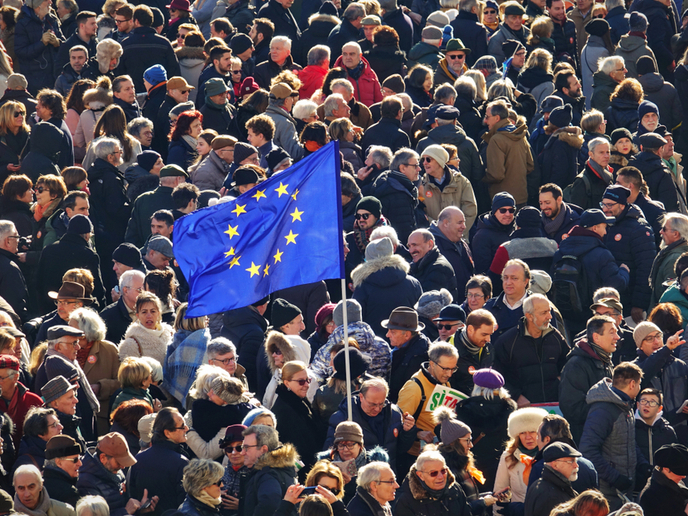Solutions for a Europe under threat
Democracy and the rule of law form the EU’s foundation. However, these values and principles are being threatened by internal and external factors in a rapidly changing world. More and more EU citizens are also losing trust in institutions that have appeared incapable of or uninterested in responding to their concerns during recent crises. With backing from the EU-funded RECONNECT project, the ‘European Policy Brief’ presents results and recommendations that may contribute to solutions to the challenges the EU is currently facing concerning democracy and rule of law.
Internal and external factors
The document begins by examining the EU’s current international challenges. It identifies four external factors that are putting pressure on democratic governance within the EU. These include deliberate disruptions by other states or non-state actors, and uncontrolled or under-controlled cross-border flows. Other examples are factors weakening liberal order and anxiety induced by great global changes. Recent shifts in the concept of sovereignty are also examined. Attention is brought to the rising demand for stronger state sovereignty as broader competences are increasingly being transferred from Member States to the EU. “Not only is the institutional balance in the relationship between the European and the national legal systems changing, the weakness of the European political debate, the lack of concrete mechanisms for consultation, the lukewarm cooperation between the Member States …, and the prevalence of the intergovernmental method risk further entrenching feelings of distrust and resentment towards EU institutions,” the brief states. With regard to the EU’s democratic systems, the authors first discuss the “particularly concerning” decline in the quality of public discourse in the last two decades. Secondly, populist parties are viewed as being accommodated in the EU’s democratic system under certain conditions. Lastly, the authors discuss the concerning drop in citizen participation in both national and EU elections. The policy brief then tackles the meaning and scope of the rule of law and discusses related best practices. “Our findings show that the rule of law is amongst the few overarching constitutional principles that undergird all legal systems in Europe,” the brief explains. “The primary challenge today is therefore practical, not conceptual in nature. Devising policies and mechanisms that effectively contribute to the concrete strengthening of the rule of law at the national and international levels remains difficult.” Three case studies conducted by the RECONNECT team are also outlined in the brief. The studies draw attention to positive trends, such as greater transparency in EU trade policies. They also discuss negative trends, such as the problems arising from the recent COVID-19 pandemic and “a concerning estrangement between EU macroeconomic principles and political preferences among political parties in several EU Member States.”
Recommendations
To conclude the policy brief, the RECONNECT (Reconciling Europe with its Citizens through Democracy and Rule of Law) authors outline a number of policy implications and recommendations. As regards the rule of law and good governance in public health emergencies, responsible actors are encouraged, inter alia, to ensure transparency in decision-making, avoid other political agendas when implementing emergency measures and comply with human rights standards. Suggested solutions for the EU’s current democratic challenges include strengthening channels of participation in decision-making processes and establishing “a genuinely representative system in which the sovereign power rests with European citizens.” For more information, please see: RECONNECT project
Keywords
RECONNECT, citizens, democracy, policy brief, rule of law



